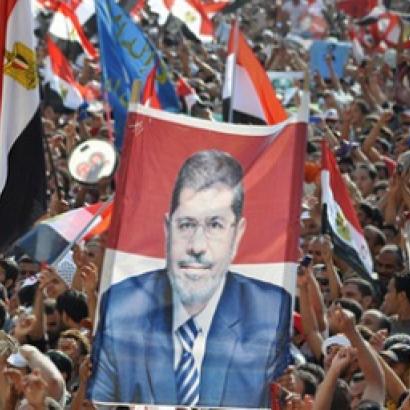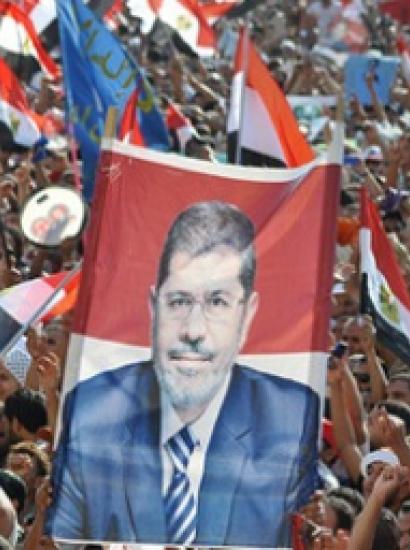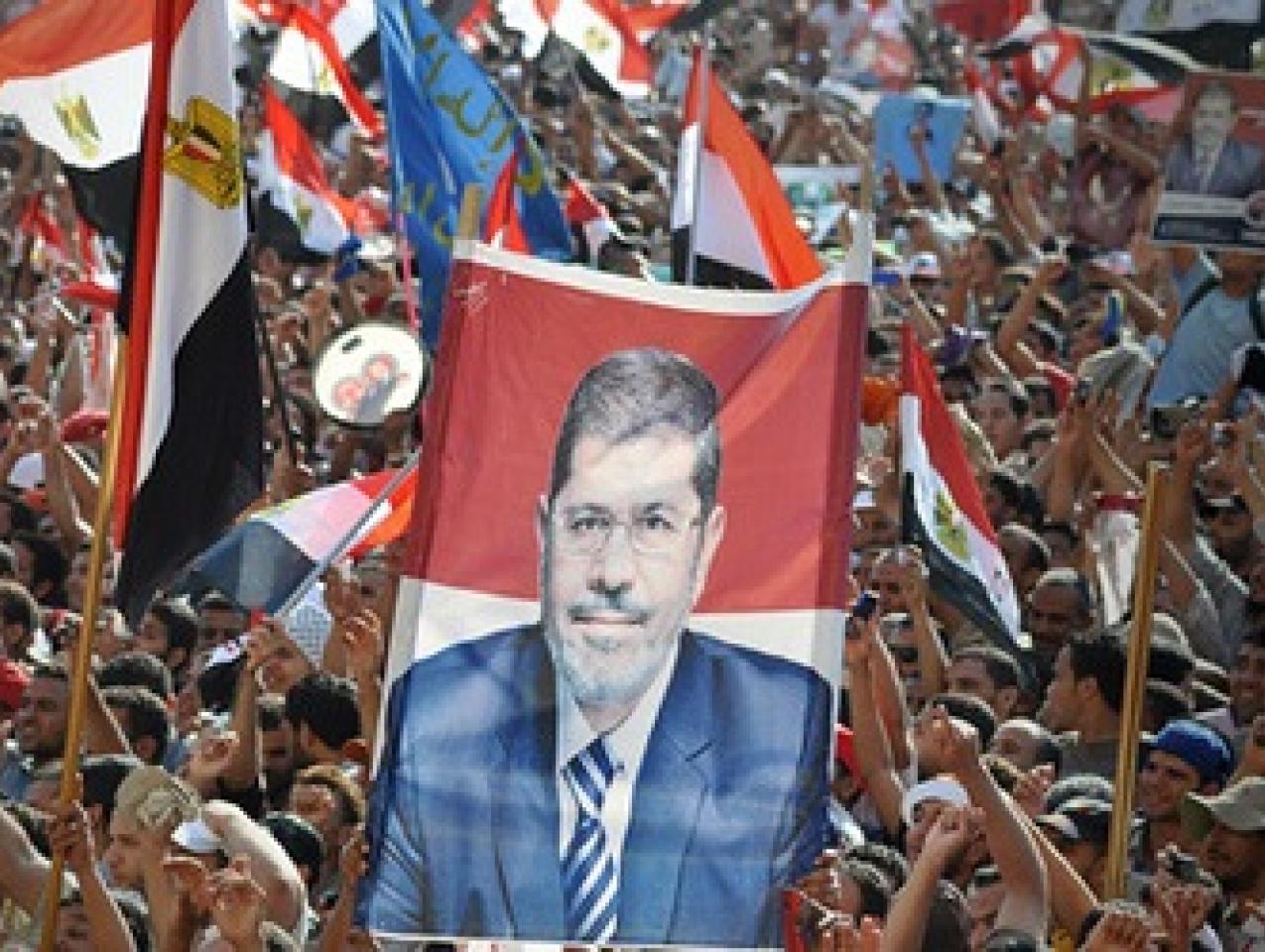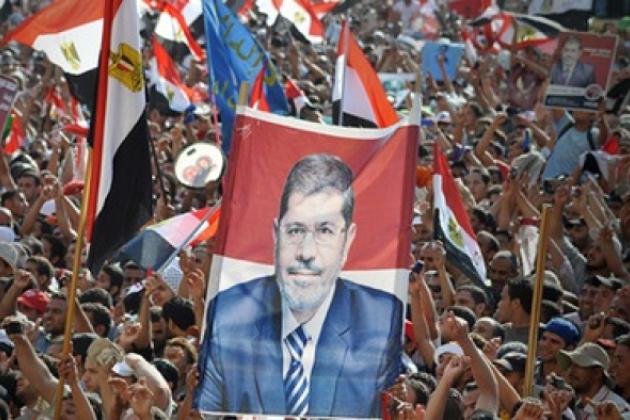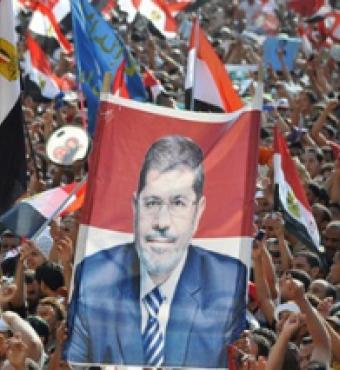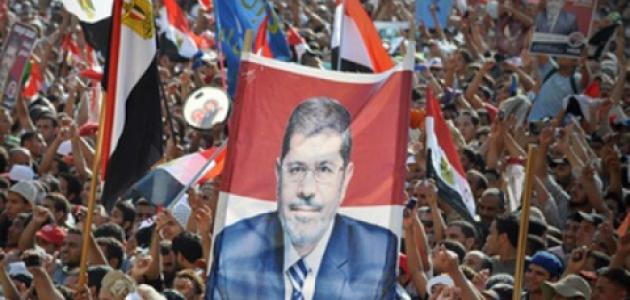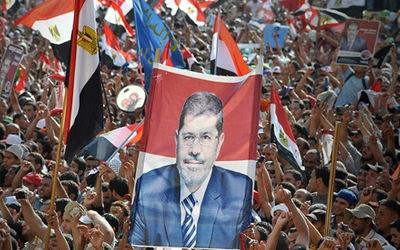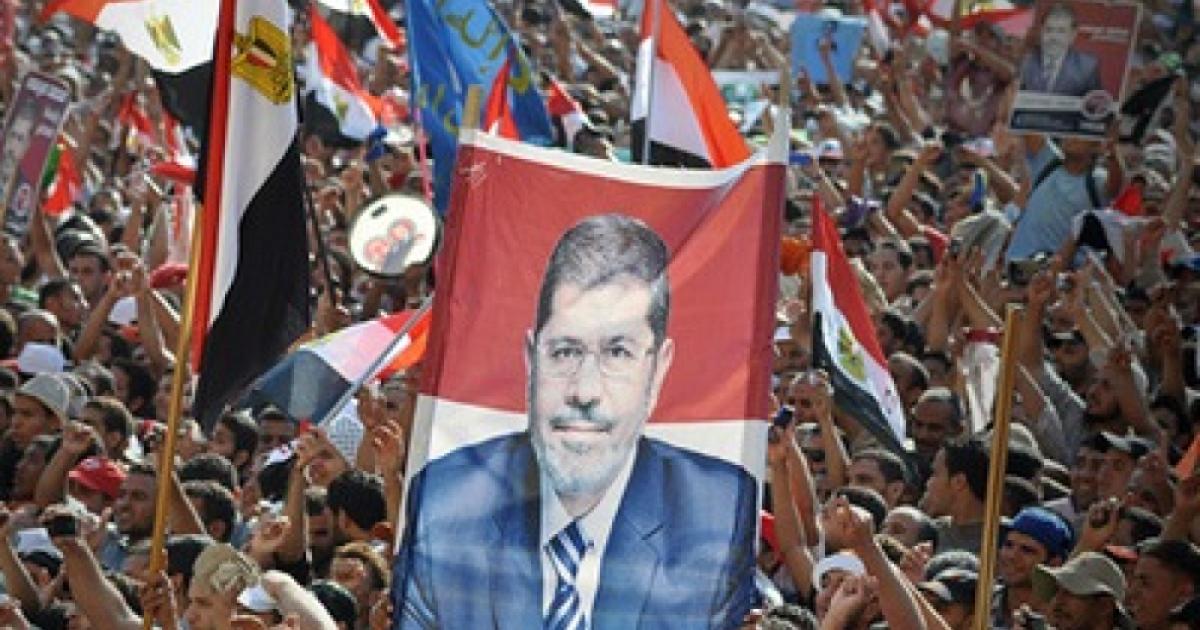- History
- International Affairs
- US Foreign Policy
- Law & Policy
- Civil Rights & Race
The overthrow of authoritarian regimes in the Middle East over the past eighteen months has brought Islamists to power. Beyond its victory in the presidential election in Egypt, the Muslim Brotherhood holds 47 percent of the seats in Egypt’s parliament and received 40 percent of the votes in parliamentary elections in Tunisia. It leads the political opposition in Jordan and in Palestine’s West Bank; in Hamas, it took control by force after elections in Palestine’s Gaza. It will probably lead a post-Assad Syria. The Brotherhood is likely to be the dominant political force in the Arab world if democracy takes hold, and even if it doesn’t.
One of the main fears about the Muslim Brotherhood is that its election to power will lead to “one man, one vote, one time.” That is, they will attain power by political means and never relinquish it. Another concern is that Brotherhood-dominated governments will be inimical to American interests—that they will tolerate and perhaps even foster terrorism, become a threat to American allies in the region, complicate international efforts to sanction Iran, and abrogate the peace treaty between Egypt and Israel. Both are legitimate concerns, but neither is a foregone conclusion.
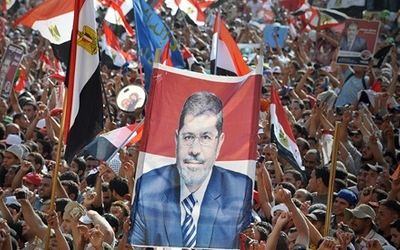
Photo credit: Jonathan Rashad
In May, I had the opportunity to spend some time in Doha with newly-elected members of the parliaments of Egypt, Libya, and Tunisia, as well as civil society leaders, journalists, and government officials from Islamic countries. Participants were not only Muslims from Arab countries, but also those from countries like Indonesia, Turkey, Malaysia, and the United States. For the latter group, the vision of the role of Islam in society is much more congenial than our caricature of “the Arab street.” That said, the center of attention at the “U.S. and the Islamic World” meeting was the Muslim Brotherhood and Salafist politicians from the newly-democratic states of the Middle East.
The Islamist leaders present were perhaps not representative of the broader movement. There would naturally be a selection bias toward those that want to engage with the West, and often a tendency to choose representatives who speak English; the meeting tried to control for both of those factors, and it seemed to do a good job of it. It was the first opportunity for many Americans to try and understand what these new political actors will bring to their offices.
There was lots of incendiary talk (“We are seeing the collapse of the Egyptian state,” in the words of one Egyptian) conflicting demands (opposition to tied aid if they win the forthcoming elections, but insistence on restrictions should their political opponents win), and ominous portents (“no non-Muslim should be elected,” in the words of another Egyptian). There is little doubt that the Muslim Brotherhood is not going to be a comfortable partner for the United States.
That said, it does reflect mainstream views by citizens of those countries. There are reasons to believe that having peacefully participated in the democratic process (unlike Hamas and Hezbollah), the Muslim Brotherhood will be limited by the same forces of public opinion that temper politics in other democratic countries.
The Muslim Brotherhood operates with decentralized national branches in many countries (including the United States). The different branches, however, share core beliefs. They clearly seek to attain political power in order to foster wide-ranging social change. Make no mistake, the Brotherhood is not a status quo political party. It would institute Sharia law, deny women the political and social latitude of men, and, if history is a precedent, be hostile to non-Muslims.
The Brotherhood: A friend of Democracy?
But this does not mean the Muslim Brotherhood would necessarily be a threat to democratic governance in the countries in which it has a dominant political role. It has for years been a regular parliamentary participant in Jordan even though the monarchy refused it the right to form a government. The Brotherhood’s leading ideologue, the Egyptian theologian Yusuf al-Qaradawi, has for more than a decade advocated that Muslim Brothers run for elected office.
In Egypt, the influence of the Brotherhood’s Islamist agenda accounts for less of their appeal than their long-standing opposition to the Mubarak government. Egyptian politicians are keenly aware that while most Egyptians support an Islamic government, polling of public attitudes indicates Islam is not a priority for Egyptian voters—only 3 percent of respondents in recent polls considered Sharia law an important issue. Egyptians are overwhelmingly concerned about security, the economy, and justice.
Egypt’s Muslim Brotherhood is not Hamas or Hezbollah, at least not yet. It does not bring violence into the political sphere. It was not the motivating force in toppling Hosni Mubarak; in fact, its members were late to the revolution. But the Brotherhood capitalized on its decades of political organization and social activism to dominate the elections.
This should not have been surprising; the Brotherhood had a structural advantage over all of the other political parties just forming. But the sharp decline in support for Brotherhood candidates in Egypt’s June 2012 presidential elections suggested that voters were irritated at the Brotherhood's ineffectualness in Parliament, concerned that it broke its promise not to run a candidate in the presidential elections, and worried about Islamist domination of Egypt’s politics.
Though Brotherhood candidate Mohammed Morsi did win the election, the Egyptian voters expressed real concern about these issues during presidential polling. Exit polls suggest voters were even more distrustful of the military's candidate, worried the secular candidate represented the Mubarak past. Voters also resented the military's moves to usurp Parliament and the Constitution drafting process. For now, it looks like Egyptians are holding the Muslim Brotherhood accountable for their political actions, not just their ideological appeal.
What role does America play?
Another major topic of discussion in Doha was the high expectations of American diplomatic aid. Even those political actors deeply suspicious of U.S. policies and resentful of our past actions want the United States to be a major participant in their countries’ transitions. They want the United States to acknowledge the inherent contradictions in our policies. They want the United States to help them identify models that may be applicable to the problems they are trying to solve (the Norwegian national trust administering oil revenues, for example, could provide Libya with a template). They want American assistance—and they don’t have much sympathy for our current economic straits, given how much more dire are their own are. They aren’t seized with concern about Iran’s nuclear program because they’re consumed with more immediate concerns in their own countries. They want us to actually care about their futures, not what they can do to advance our interests.
We should help these new democracies consolidate, and build institutions. It’s going to be messy. Democracy always is. They are trying out political slogans and ideologies for their popular appeal. There are going to be—already are—setbacks and mistakes. But what the people who made these revolutions want is accountability from their governments, and that’s something Americans can identify with and should put themselves squarely on the side of.
The government of Qatar has been an advocate of democratic change (in other countries) in the region. It was the major force pushing Arab League appeals for United Nations intervention in Libya and condemning Syria’s Bashar al-Assad. Qatari pilots flew combat missions in the Libya coalition.
Qatar is home to the Muslim Brotherhood’s chief political strategist, and was the sponsor of the meeting with the Islamists. Banners in Doha show a Saddam Hussein type statue being toppled from its pedestal. Prominent ears on the statue make it recognizable to people in the region as Bashar al-Assad. A tiny bird with a fountain pen for a beak chips away at the base of the statue, causing the fall—a remarkable statement about the power of political dissent. The banners direct readers to www.syria2012.com, a site documenting human rights abuses by the Syrian government. It is also a measure of the extent to which the subtler authoritarian governments in the region are seeking to reposition themselves with respect to the “Arab street.” The Muslim Brotherhood, kin to Hamas and Hezbollah, is likewise trying to reposition itself in opposition to repressive violence, a welcome development.
The so-called Arab world is changing, and opportunities abound for the U.S. to promote positive change, to engage new political actors, to help states to redefine and reposition themselves. It used to be that when Saudi Arabia spoke, one knew what the Arab countries thought; that is no longer true. The spectrum, not only of opinion but activism by governments in the Middle East, is widening. We need to watch carefully and discern where new opportunities present themselves, including with uncomfortable political partners.
The most surprising and exciting fact about Islamist politicians in evidence at the Doha gathering was how thoroughly and boringly political they are. They know voters are impatient for change and understand they’ll be bounced out of office if they don’t produce it. Thomas Jefferson said, “when the people fear their government, there is tyranny; when the government fears the people, there is liberty.” What I heard in Doha were Islamist officials who feared their constituents. And that’s a great step toward freedom in the Middle East.
The most worrisome thought dealing with Brotherhood and even Salafist politicians is not what will happen should they succeed, but what will happen should they fail. Moderate Muslims have been winning the argument over the past decade that al Qaeda’s nihilist vision isn’t the path. Restoration of the caliphate by any means is not the Islam most Muslims want.
Elections in Egypt, Tunisia, and Libya—even the glacially slow political change that the Gulf’s authoritarian governments are quietly experimenting with—demonstrate the people of the Arab world want accountable and transparent governments. They want institutions to constrain the power of rulers; they want grievances addressed; and they want the means by which to change their leaders if those leaders aren’t responsive to their concerns. The revolutions of the Arab spring have given citizens of those countries hope that political change can achieve those ends. If governments fail to produce that change, the al Qaeda narrative could again get traction in the disillusionment and despair that follows.
Too many vitriolic statements, too numerous to count, have made the radical and frightening intentions of this "Brotherhood" abundantly clear. They're coming to the party a little late doesn't impress me as much as the likelihood of deep seated emotional attitudes. For example, right out of the shoot, when questioned about Israel, the president elect qualified his approach: (paraphrasing) "We'll cooperate with present peace agreements provided Israel cooperates." I see it as him saying "we're going to the matts with these guys, and I'm looking for the first excuse."
It used to be: "No peace with Syria, No war without Egypt." As for me, it's now a whole new ball game.
---Arthur T. Dallas








